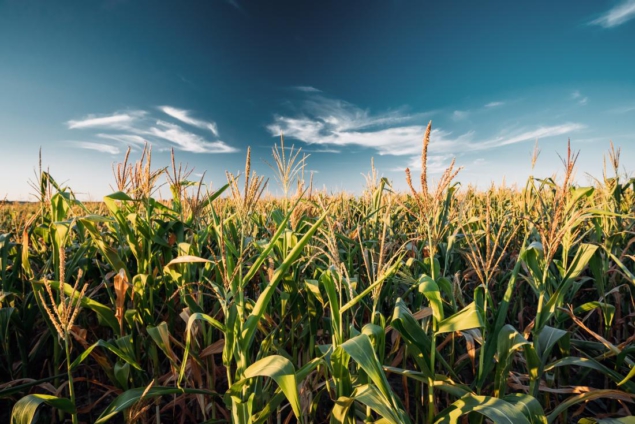It’s unconstitutional to allow anti-science groups to use Ghana’s judicial system to deny farmers the benefits of biotechnology, Ghana’s National Farmers and Fishermen Association contends.
The association, which has a membership of 2 million farmers from across the country, according to court documents, made its argument in documents submitted to Ghana’s High Court as part of an ongoing legal battle over whether the nation can allow production of genetically modified organisms (GMOs).
“The use of biotech as a tool for the enhancement of agricultural productivity is in consonance with article 36 (3) of (Ghana’s) 1992 constitution, which enjoins the state to take appropriate measures to promote the development of agriculture and industry,” John A. Dziwornu, the association’s vice president, wrote in a witness statement submitted to the court.
“Biotech has since found expression and or endorsement under the National Science, Technology and Innovation Policy as a tool for the promotion and enhancement of agricultural productivity,” his statement continued. “The plaintiffs cannot use the medium of the court to deny farmers and the country the benefits that will accrue from the use of biotechnology — such action flies in the face of Ghana’s obligations under international law and the constitution.”
Food Sovereignty Ghana, a civil society organization, has joined three other groups in seeking a declaration that ongoing trials to allow for the introduction of locally produced GMOs in the country are illegal. They claim that requirements in the National Biosafety Act 2011 were breached when approval was given for field trials about eight years ago because the legally mandated National Biosafety Authority had not yet been established.
The case, which travelled all the way to the Supreme Court before being sent back to the High Court, was expected to resume this month, but the court adjourned the hearing until Nov. 15 without stating a reason for the delay.
The court previously delayed proceedings for three months after plaintiffs argued they needed time to secure testimony of three foreign witnesses, including anti-GMO activist Vandana Shiva.
Witness statements reviewed by the Alliance for Science show entrenched positions on both sides.
According to a statement for the plaintiffs signed by Edwin Kweku Baffuor Andoh of Food Sovereignty Ghana, the ongoing processes amount to a complete illegality considering the absence of public awareness, scrutiny and participation in the decision leading to the confined field trials (CFTs). The CFTs were carried out without any allowance for appeals against or objections to the approval as required under section 26 of the Biosafety Act 2011, he stated.
Food Sovereignty Ghana also alleges in the court documents that it has observed an attempt to manufacture consent and to impose GMOs on Ghanaians irrespective of the consequences. “This makes our case not only a human rights issue but an important matter of national security and sovereignty,” the statement claimed.
But Dziwornu denied that contention, stating it was the Association’s understanding that Ghana’s government made an affirmative political decision to pursue the development of GMOs when it ratified the Cartagena Protocol on Biosafety on May 30, 2003, and implemented it about four months later.
The Cartagena Protocol is an international agreement that addresses the safe handling, transport and use of living modified organisms (LMOs) resulting from modern biotechnology.
“The state, with a view to meeting its international obligations, has also taken various and varied steps to give meaning and or effect to the protocol on biosafety, including but not limited to the passage the Biosafety (Management of Biotech) Regulations, 2007, and subsequently the Biosafety Act 2011, Act 831,” Dziwornu noted.
As farmers and fishermen, he said, they have at all times been actively involved in the relevant decisions affecting the passage of these laws, as well as the implementation of the policy on GMOs. They have also received extensive education on GMOs and their effects.
“Our position is that the introduction of GMOs has the vast potential of enhancing agricultural productivity and production and a decision to ban same will have adverse impacts on farmers and fishermen and by extension, their economic and social rights,” Dziwornu said.
“GMOs are a global phenomenon that have been embraced by nations the world over and ought to be promoted to combat food insecurity and poverty reduction. A lot of resources — financial, human and material — have been invested in these projects. I pray the court not to heed the plaintiffs’ case and dismiss all their claims,” he concluded in his statement.
****
This article was reproduced from Alliance For Science, Cornell University and it was published on October 29, 2019
Latest Stories
-
DAMC, Free Food Company, to distribute 10,000 packs of food to street kids
1 hour -
Kwame Boafo Akuffo: Court ruling on re-collation flawed
1 hour -
Samuel Yaw Adusei: The strategist behind NDC’s electoral security in Ashanti region
1 hour -
I’m confident posterity will judge my performance well – Akufo-Addo
2 hours -
Syria’s minorities seek security as country charts new future
2 hours -
Prof. Nana Aba Appiah Amfo re-appointed as Vice-Chancellor of the University of Ghana
2 hours -
German police probe market attack security and warnings
2 hours -
Grief and anger in Magdeburg after Christmas market attack
2 hours -
Baltasar Coin becomes first Ghanaian meme coin to hit DEX Screener at $100K market cap
3 hours -
EC blames re-collation of disputed results on widespread lawlessness by party supporters
3 hours -
Top 20 Ghanaian songs released in 2024
4 hours -
Beating Messi’s Inter Miami to MLS Cup feels amazing – Joseph Paintsil
4 hours -
NDC administration will reverse all ‘last-minute’ gov’t employee promotions – Asiedu Nketiah
4 hours -
Kudus sights ‘authority and kingship’ for elephant stool celebration
4 hours -
We’ll embrace cutting-edge technologies to address emerging healthcare needs – Prof. Antwi-Kusi
5 hours

